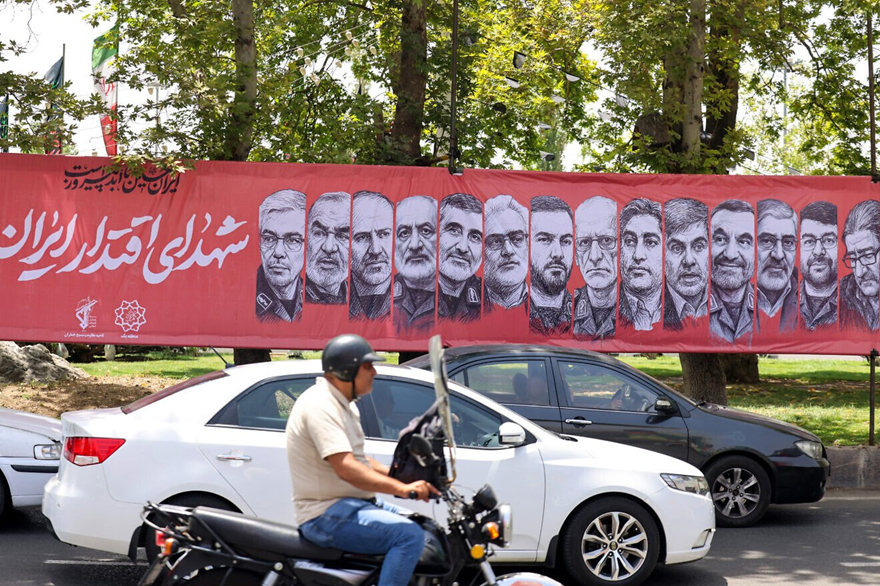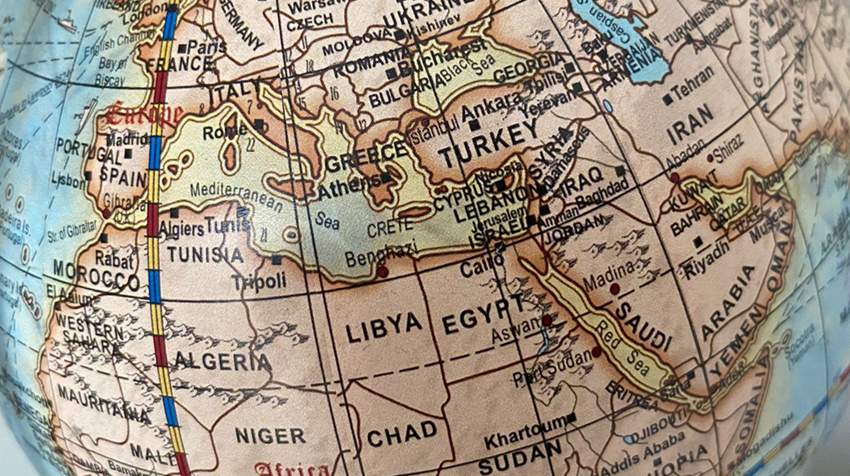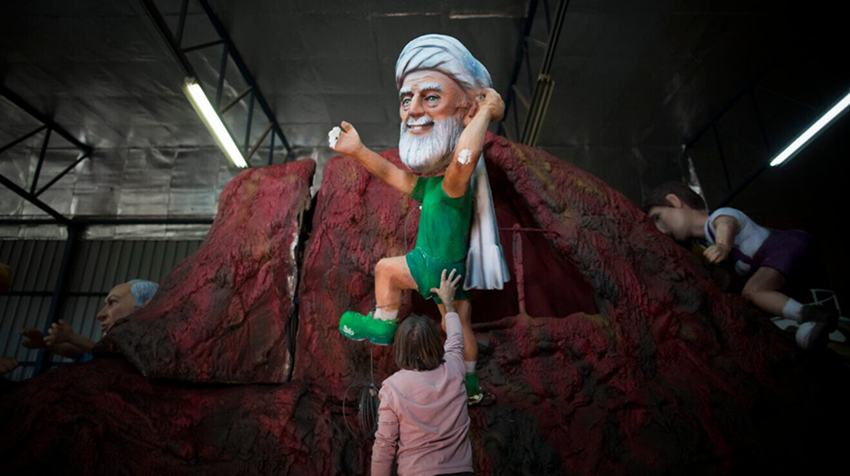Credit: Atta Kenare/AFP via Getty Images.
All 14 Jews the Iranian regime arrested have been released, Iranian opposition activists and journalists told JNS, after news reports last week that the Islamic Republic arrested some 600 people across the country after an announced ceasefire between Iran and Israel.
Rosa Parto, an Iranian-Israeli journalist based in Israel, told JNS that a “reliable source,” a Muslim man who works in the Iranian government and is “unfriendly to the regime,” told her that no Jews were arrested in Tehran.
“All 14 Jews, who were arrested in the cities of Shiraz and Isfahan between June 24 and 25 in the raids by the regime’s intelligence services, have now been released,” the source said, according to Parto.
Parto told JNS that the Iranian regime’s intelligence services were not targeting Jews in Iran specifically. Only later was it discovered that Jews were among the more than 600 Iranians arrested for liking posts or sharing posts on social-media platforms that were deemed to be anti-regime during the war.
George Haroonian, a longtime Iranian Jewish activist who co-founded the No to Antisemitism nonprofit in Los Angeles, told JNS that he has heard that about 35 Jews were arrested the regime has released all but two or three of the Jews who were arrested.
Two of the arrested Iranian Jews, who are from Shiraz, were involved in an online daf yomi study, a daily regimen of Talmudic study via social-media applications on their phones.
The Iranian regime’s cyber police was monitoring the phones of those Jews and “arrested them, not realizing that the WhatsApp group these Shiraz Jews were chatting within that had Iranian Jews in it participating from outside Iran—but it was just a daf yomi for studying Torah and Gemara,” Haroonian told JNS.
“Once that was cleared up, they were all released,” he said.
Parto told JNS that news reports, including Israeli ones, claiming that 700 Jews, including rabbis and cantors, were arrested in Iran were incorrect, according to her contact in the Iranian regime and Jewish friends living in several cities in Iran.
The Israeli outlets “are relying on unsubstantiated social-media posts by a fairly new and small Iranian opposition group of only four women in Paris called Association Femme Azadi, who are neither Jewish nor do they have direct contacts with the Jewish community inside Iran,” Parto told JNS.
“They’ve shamefully made up this fake news just to get media attention without any regard for the lives of Jews in Iran,” Parto said. “Those of us in touch with actual Jewish friends and family would have been notified immediately by our Jewish loved ones there if they were in serious danger or if there were mass arrests.” (JNS sought comment from the association.)
‘Please do not send us any messages’
Two weeks ago, Yehuda Gerami, chief rabbi of Iran, and the Tehran Jewish Committee issued statements decrying Israel’s attacks on the regime.
Homayoun Sameyah Najafabadi, a pharmacist who is the chair of the committee and a member of the Iranian regime-controlled Parliament, has made several recent appearances on the regime’s state-controlled media denouncing the “Zionist attacks on Iran.”
A Jewish Iranian activist in Los Angeles, who spoke anonymously for fear of the regime retaliating against the source’s relatives in Iran, told JNS that he spoke to Jewish leaders in Iran last week and learned that there were no mass arrests of Jews in the country.
The regime’s intelligence services told Jewish communities throughout the country not to communicate with people outside of Iran, especially those living in Israel, the Jewish leaders told the activist.
“In recent days, when the Internet was not down, I was able to briefly speak to prominent Jews in Iran who said the community has not been physically harmed. But the regime’s internal security forces have warned them that all of their phone and Internet lines are being closely monitored by the regime,” the source told JNS.
The regime also told Jewish leaders that “anyone caught speaking to people in Israel will automatically be imprisoned for six months on charges of espionage against the state,” the source added.
Many of Parto’s longtime Jewish friends in Tehran and Isfahan reached her briefly late last week via social-media platforms and asked her not to contact them because they feared the regime’s wrath.
“Several Jewish friends inside Iran sent me messages on Instagram and WhatsApp saying they were unharmed but very frightened of the regime’s authorities, which had told them the Jews in Iran were being closely surveilled,” Parto told JNS.
“One of them said, ‘Please, please do not send us any messages,’ and one even apologized to me for unfriending me on Instagram,” she told JNS.
The situation is ‘very precarious’
Fred Saberi, an Iranian-Swedish political analyst and opposition activist, told JNS that the Iranian regime’s humiliating defeat to the Israeli military on Iranian soil exposed the Islamic Republic’s internal weakness. The regime’s security apparatus is cracking down on the population in the country to discourage potential domestic uprisings, he said.
“The regime is like a badly wounded hyena right now, and they want to show they are still in control there, so they will arrest and perhaps even execute hundreds of innocents inside Iran,” Saberi told JNS.
“The regime is very suspicious of everyone being a spy in the country, especially the Jews living there, who they may think have connections with Israel,” Saberi told JNS.
On June 25, the Iranian regime-controlled PressTV stated that the regime executed three people it said were Israeli spies operating in Iran.
Jewish Iranian-American leaders have for decades largely avoided public comments about the regime for fear that their statements about the regime could lead it to take revenge against Jews in Iran. (JNS sought comment from the Iranian Jewish Federations in Los Angeles and New York.)
Parto and other Iranian Jewish activists told JNS that news outlets and organizations worldwide should be cautious about making public statements attributed to the Jewish community living in Iran, because the regime may use such statements as an excuse to lash out at the Jewish community.
“The situation for Jews living in Iran right now is very precarious, and I would strongly urge anyone, especially groups in America, Europe and Israel, to avoid making comments in the media that could possibly place our Jewish loved ones there in jeopardy,” she told JNS.
Source: JNS


































